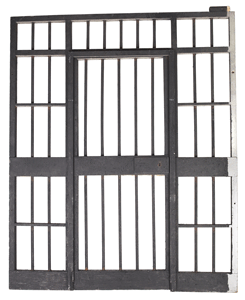NEWS AND EXPERTS — Prison reform efforts in many states have often been about reducing the inmate population in an effort to save money, but for prison reform advocates this is more than just a pocketbook issue.
“Criminal justice reform isn’t just about passing laws to reduce prison sentences or promoting policies to reduce prison populations,” said Khalil Osiris, a former prison inmate and author of the book “A Freedom That Comes From Within.” “It’s about changing the way we think about crime and punishment.”
States are experimenting with reducing mandatory sentences, and giving judges and prosecutors more discretion in sentencing. Other reforms include coming up with alternative settings for the mentally ill, which some studies show is more than 30 percent of the prison population. Reforms also include enhancing educational opportunities, which is what helped Osiris turn his life around.
His path to prison began when he was a teenager, and at one time he was facing the possibility of a 75-year sentence. But by the time of his release, he had earned his bachelor’s and master’s degrees from Boston University, and wrote the manuscript for his first book— The Psychology of Incarceration: A Distortion of the State of Belonging. During this time, Osiris also became pen pals with Makaziwe Mandela, the daughter of Nelson Mandela. This friendship led him to South Africa where he worked for seven years and launched several educational and social reform initiatives— including a re-entry program in prisons.
Osiris thinks there is plenty of room for more effective prison reforms in the United States. His suggestions include:
•Better data collection. “We should start developing more effective practices and processes for collecting data on incarceration in order to develop a clearer understanding of what is happening and why, particularly on a state and local level,” Osiris said. “There are vast disparities in state statistics on prison and criminal justice reform. We must develop a deeper, more nuanced understanding of those differences in order to quantify what progress means.”
•Increase employment opportunities. Employment for formerly incarcerated citizens is foundational to criminal justice reform efforts. The most successful employment program Osiris has seen in America isReady4Work, an anchor initiative of the Jacksonville, Florida based organization called Operation New Hope. Ready4Work provides a practical way to turn our national concern about criminal justice reform into effective, scalable action.
•Increase indigent defense and plea bargaining guidelines. “To ensure prosecutorial oversight, it’s important to require judges to enforce the plea bargaining guidelines. It is also important to secure legislative adoption of the guidelines in states with directly elected county district attorneys,” Osiris said.
•Develop prosecutorial guidelines. “Prosecutors have more discretionary choices and power in the criminal justice system than any other stakeholder, including judges,” Osiris said. “They can have more impact on mass incarceration numbers than any other stakeholder. Yet they have very few established guidelines regarding sentencing.”
“Prison reform is a critical issue, and it can indeed save states money,” Osiris said. “But my mission is to transform the hearts and minds of incarcerated and formerly incarcerated citizens by inspiring them to think differently and make better choices.”
Khalil Osiris is an international speaker on restorative justice and transformational leadership and the author of “A Freedom That Comes From Within.” He spent 20 years in prison and transformed his life, emerging with a deep understanding of how to use personal crisis, challenges and opportunities for self-improvement. For more information, visit: www.khalilosiris.com.
